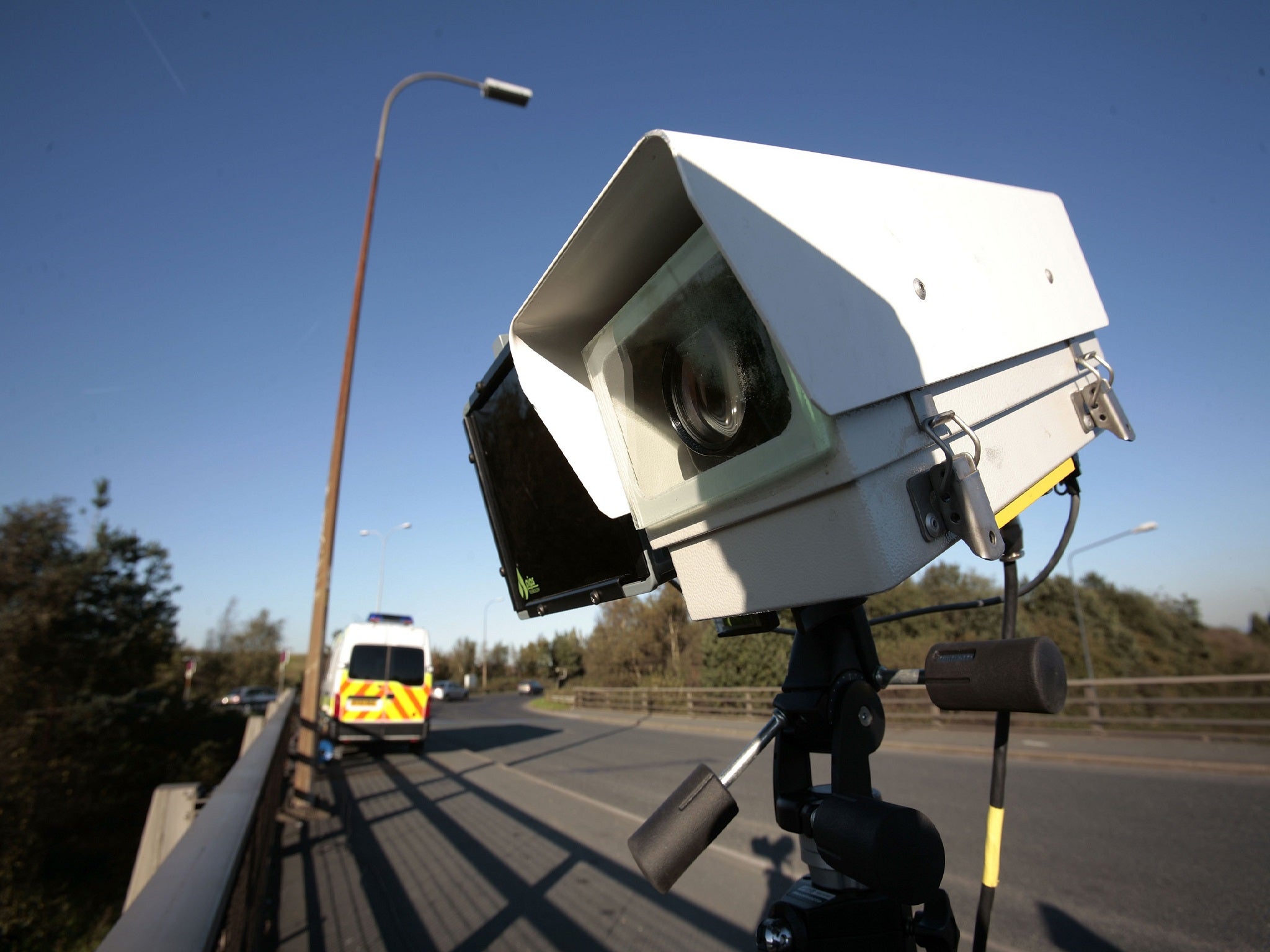Privacy fears as police surveillance cameras capture 34 million number plate images a day
The central database has 22 billion photos captured during the last two years

Britain’s thousands of number plate surveillance cameras are capturing up to 34 million images a day, raising concerns over the privacy of motorists.
The number of records held by the national system, which was introduced in 2006, has increased from 35 million to 22 billion over the last 10 years.
Police are also using the database more frequently to carry out inquiries, with more than a 50 per cent increase between 2012 and 2014 – from 194,317 to 300,758.
The figures, obtained by Sky News, show that automatic number plate recognition (ANPR) cameras captured around 34 million images each day during one week in October last year.
Jonathan Bamford, head of steric liaison at the Information Commissioner’s Office, raised concerns over the latest statistics.
"You've really got to ask the question about the extent of ANPR and the amount of records that it's collecting.
"There are a lot of people going around on their ordinary day to day business doing nothing wrong, innocent individuals – those are being acquired at the rate of 30 million or so a day and being retained for a number of years.
"You end up with a picture where there's not a lot of our lives taking place which the state can't gain access to in some ways. So it's very, very important that there's a proper public policy debate about the extent of surveillance in the United Kingdom," he told Sky News.
However, the police say the cameras are a vital tool in the fight against crime.
The National Police Chiefs’ Council Lead on ANPR, Assistant Chief Constable Paul Kennedy, told the Independent: "ANPR has been used by police for over a decade and it is a vital tool both in the prevention and detection of crime including counter - terrorism, homicide and serious and organised crime.
"It also enables police to understand local crime patterns and has resulted in the arrest of some of the country’s most prolific and dangerous criminals."
Martin Lyddon, ANPR manager at Essex Police, told the Daily Mail: "ANPR makes a positive contribution to policing objectives every day, supporting a range of activities from volume crime enquiries to major incidents.
"The blend of traditional policing methods combined with ANPR technology has brought these offenders to justice.
"We know that it can be considered by some to be controversial, but it has proven itself as a crucial tool in both detecting and deterring crime.
"We have extremely stringent processes in place to manage the data that these cameras collect and innocent members of the public have nothing to be concerned about."
According to the paper Essex Police, which currently has 64 ANPR cameras, are purchasing an additional 31.
In the past year, evidence from ANPR cameras has reportedly been used in more than 200 court cases, securing convictions for offences including robbery, kidnapping, drugs and murder.
Join our commenting forum
Join thought-provoking conversations, follow other Independent readers and see their replies
Comments
Bookmark popover
Removed from bookmarks